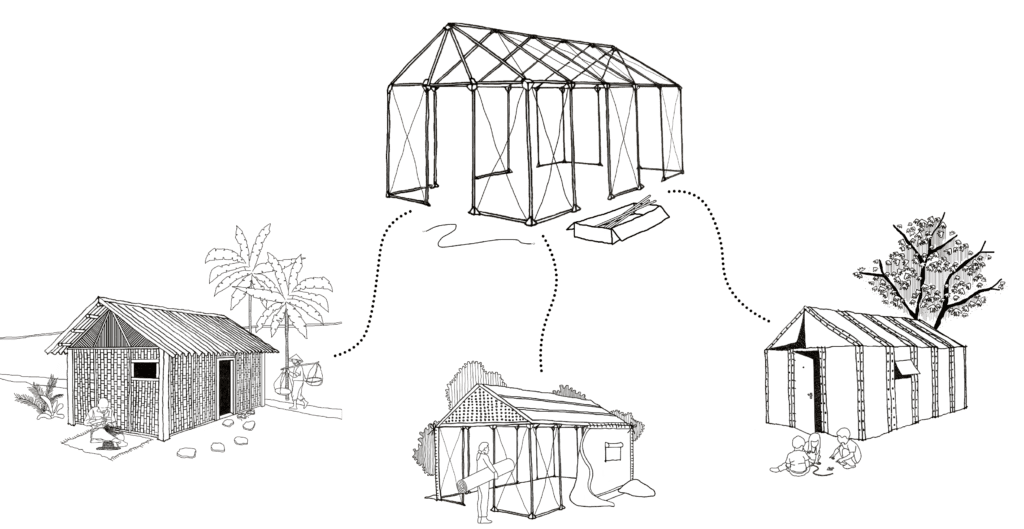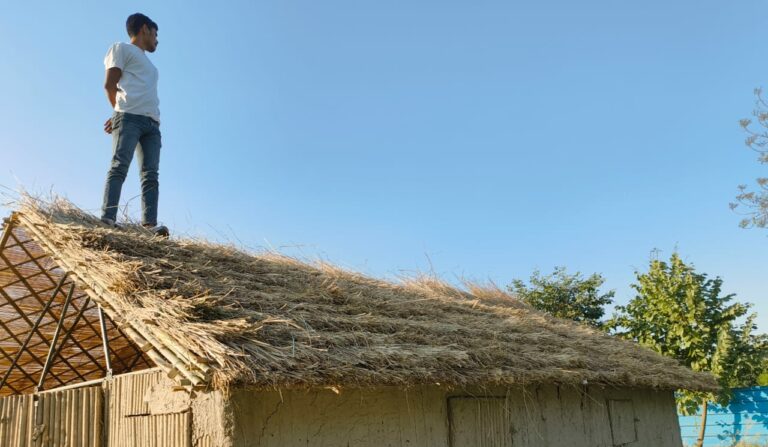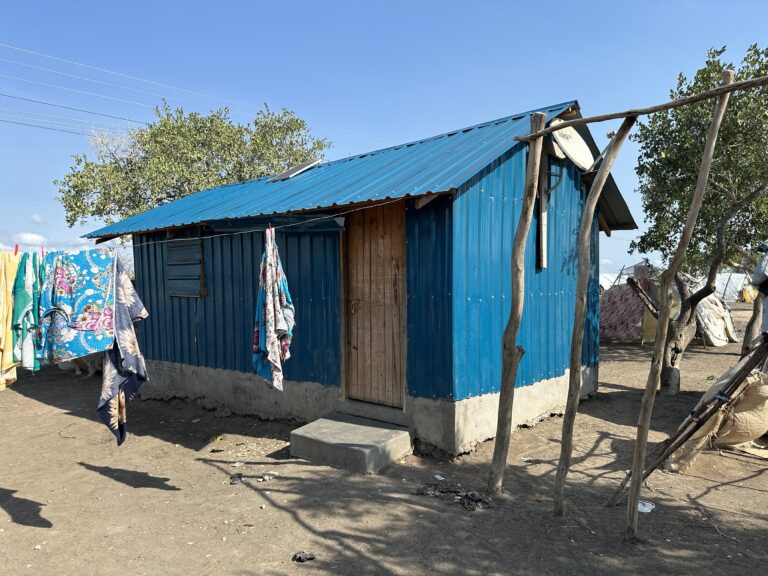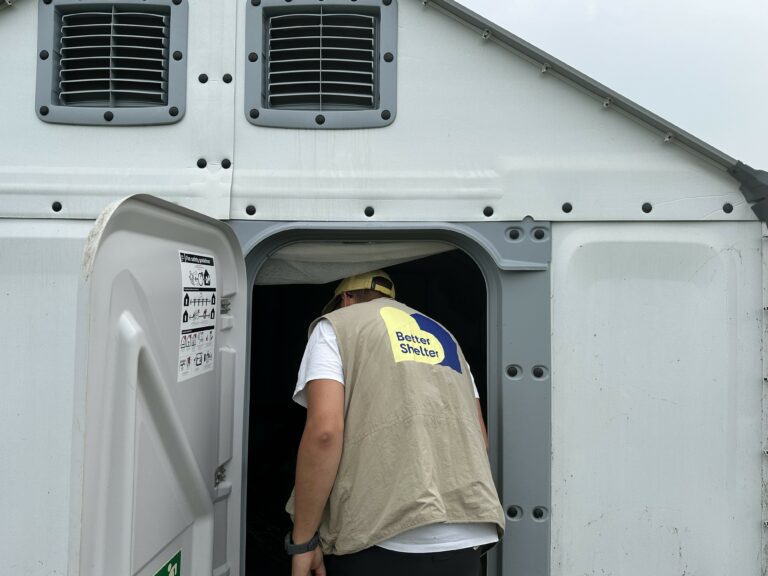INNOVATION

Testing new shelters
We are testing new shelters in Brazil, India and Türkiye with partners. The pilots assess climate performance and locally available materials, guiding evidence-based improvements for future responses.
The pilots also build on the expertise of humanitarian partners who have previously implemented our shelter system, offering insights into what works well and what doesn’t. We monitor key parameters such as temperature, humidity, and wind, while comparing how easily different materials, including corrugated iron, bamboo, and wooden planks, can be attached to the new shelter frame.
These findings are described in more detail here: pilot testing our new shelter portfolio.

An incremental approach
Our new shelter portfolio is built around a lightweight, durable modular frame that adapts to different materials, needs and budgets. Its flexible design allows for varied sizes, shapes and uses – from shelters to clinics, classrooms and safe spaces.

Deploy
A sustainable product strategy addressing the shelter needs of the millions of people who may face displacement in the future.
An approach to create a modular and versatile shelter framework that can be easily stockpiled and assembled.
Upgrade
A pre-fabricated panel system that offers safety and dignity from the outset, with rapid assembly and versatile applications,
Made of materials which create as little environmental impact as possible.
They serve as temporary structures that can fit into complex humanitarian responses.
Upcycle
Enable communities to upgrade with available building materials using local traditions and expertise.
Adapt shelters as local resources become accessible and transform them into more durable buildings in protracted emergencies.
Our design philosophy
Projects and news

PILOT TESTING A NEW SHELTER SYSTEM
Throughout 2024, we piloted our new shelter portfolio with humanitarian partners.…

Supporting flood victims in Kenya
Most of the population along the Tana River lives in flood-prone…

Testing our shelters in India – an update
We work closely with our partners to continuously improve our shelters…
